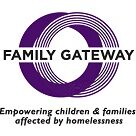November 7, 2022 – Dallas Observer – Jacob Vaughn
The Dallas R.E.A.L. Time Rapid Rehousing initiative, a partnership between local governments and homelessness organizations, has been able to provide homes to some 1,265 people who would otherwise be homeless. That’s almost halfway to the initiative’s goal of rehousing 2,700 homeless people and families by 2023.
Leading the effort is Housing Forward, formerly known as the Metro Dallas Homeless Alliance. The nonprofit organization said its challenges include rent increases, a tight rental market and the unwillingness of some landlords to accept housing vouchers, as well as racial inequities in housing and homelessness.
Some of these issues are also leading to an increased demand for housing assistance, the group says.
“Housing Forward, along with our partners in the All Neighbors Coalition, are feeling increased pressure,” Joli Angel Robinson, president and CEO of Housing Forward, said in a press release. Service providers are seeing more visitors and taking more calls for services than usual, and it’s beginning to strain their resources. “When rents increase and the rental housing market tightens, more and more individuals and families are feeling the immense impact of already precarious housing situations,” Robinson said.
That’s why Housing Forward is also working on keeping people out of homelessness through what it calls diversion. Family Gateway, one of Housing Forward’s partner organizations, has shown that the cost of. keeping people out of homelessness through some sort of housing assistance is one tenth of the average cost of a family’s shelter stay. On average, Family Gateway spends about $1,275 per family to keep them off the streets. Half of those families didn’t need financial assistance at all. Compare that to the $12,320 it usually costs to put up a family in a shelter and provide services for a little over two months, and you’ll see why many say diversion is a bargain.
“It really is sort of this innovative approach where we’re kind of bringing housing assistance to the front door of the system, so people don’t have to enter shelter in order to get that level of care,” Sarah Kahn, Housing Forward’s chief program officer, told the Observer. “So sometimes that looks like … people identifying friends or family that they can move into. Sometimes, it’s the diversion specialists helping to mediate conflict with a family member where they were living previously or with a landlord, for example.”
